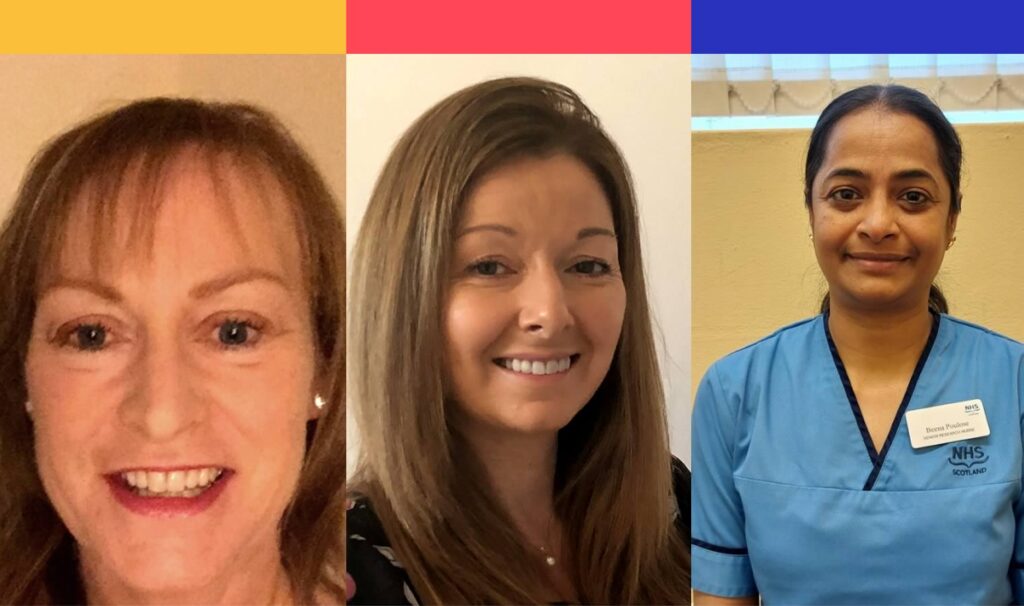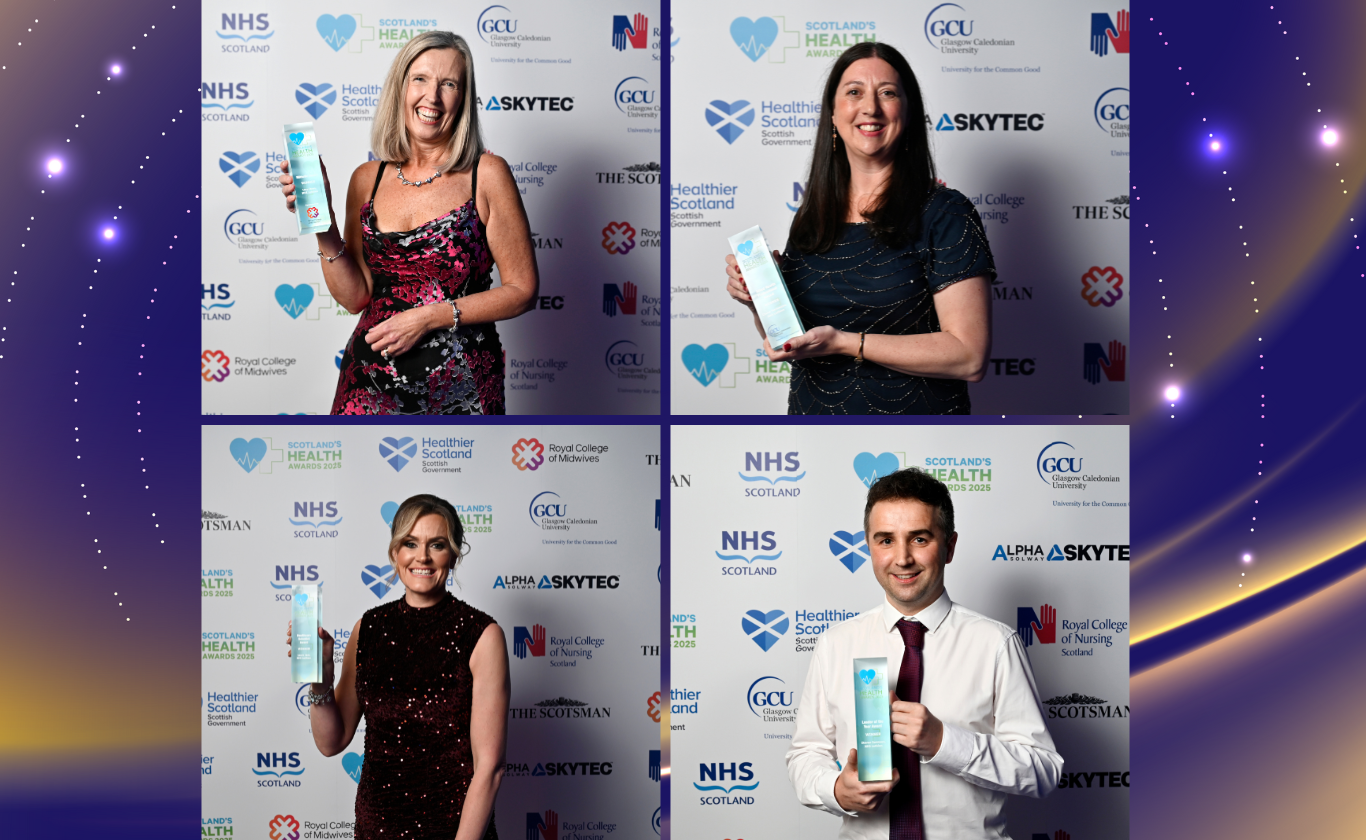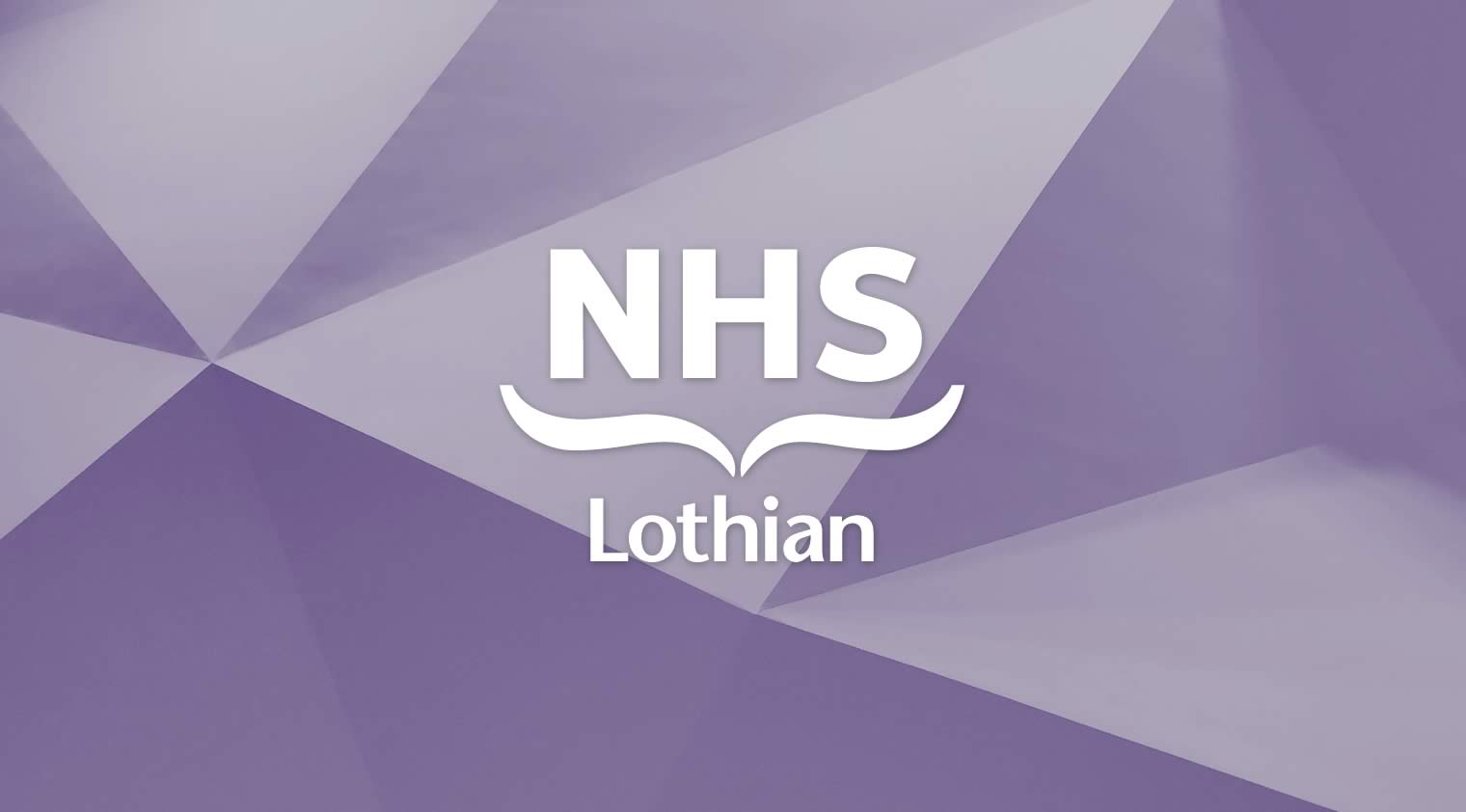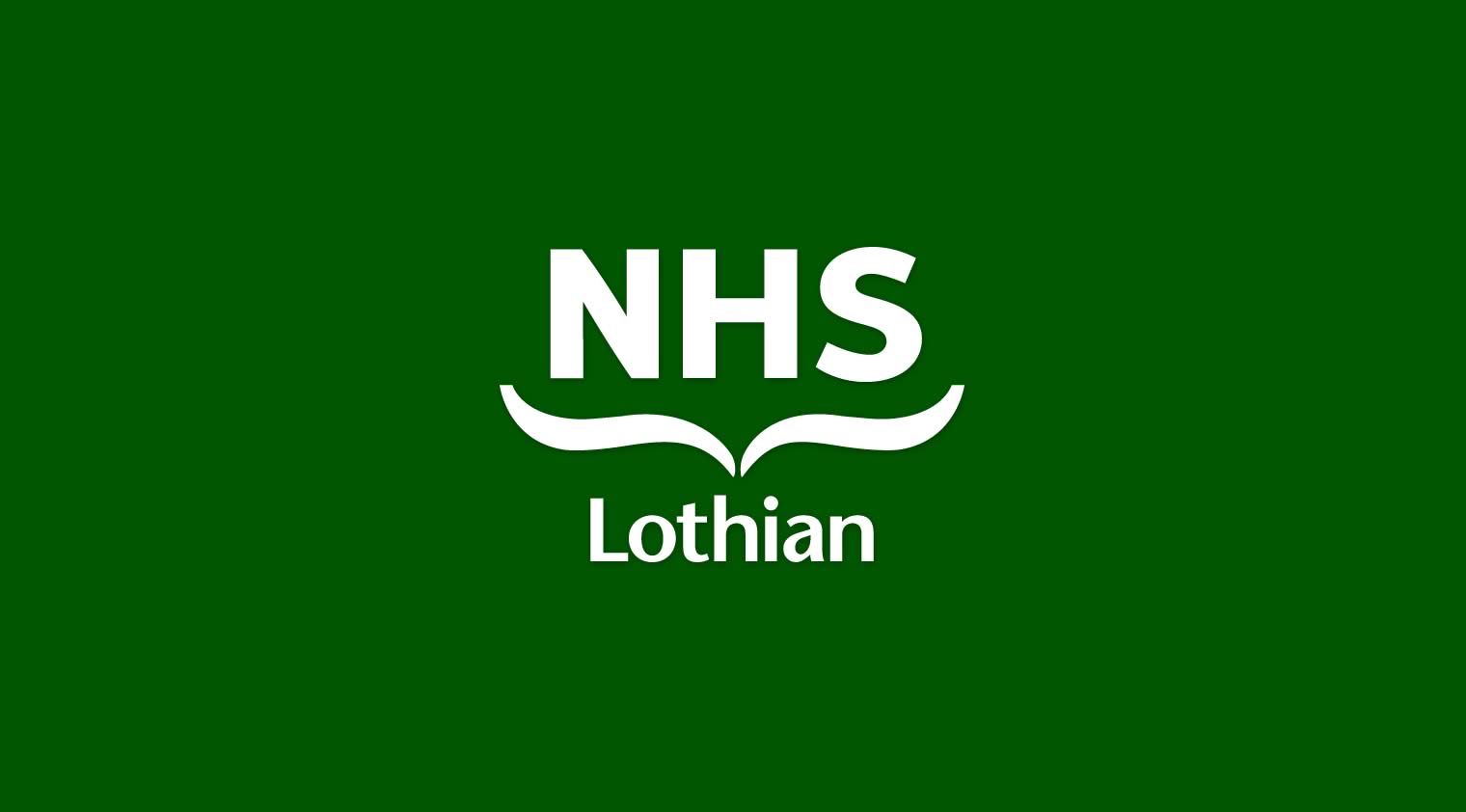For International Women’s Day, we spoke to three women who are spearheading clinical research in NHS Lothian. Lesley Steven has been a Research Nurse for over 20 years and is working in diabetes research to support patients through this life-long disease. Beena Polouse is a Senior Research Nurse in gastrointestinal research, working with IBS, Crohn’s, and colitis. Last, but not least, Elaine Jack is a Research Midwife focused on women’s and babies’ health.
Beena Poulose
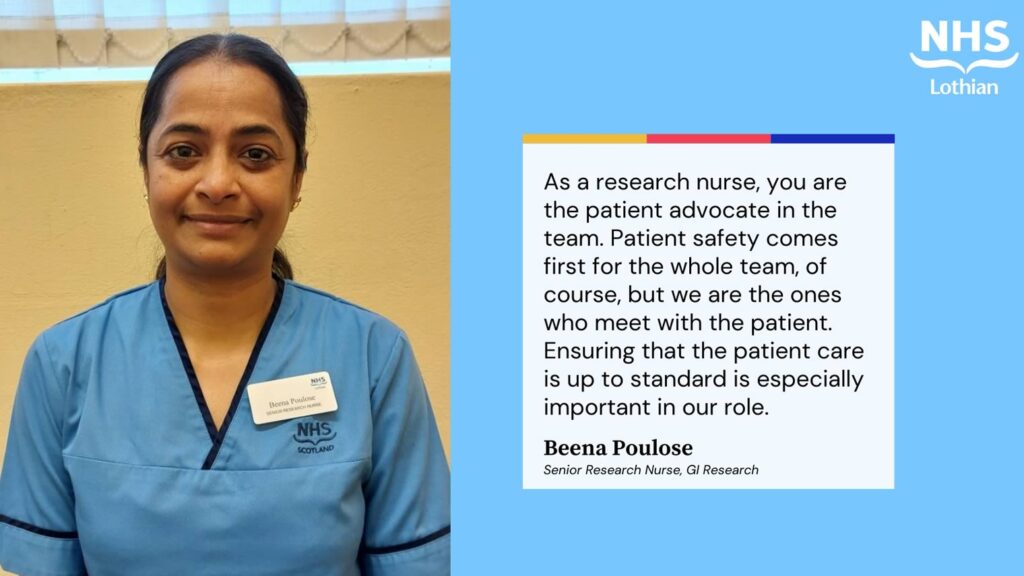
Beena Poulose is a Senior Research Nurse who works closely with a gastrointestinal (GI) consultant and provides vital support to all clinical GI research undertaken by them.
“As a research nurse, you are the patient advocate in the team,” Beena explains. Her team consists of herself, a consultant – often called the principal investigator (PI) – another research nurse, research fellows and lab technicians. She coordinates all research activities and makes sure everything is correct before the clinical trials start.
“Patient safety comes first for the whole team, of course, but we are the ones who meet with the patient. Ensuring that the patient care is up to standard is especially important in our role.”
Beena and the other research nurse in her team are the ones recruiting patients, collecting and processing samples, while most of the analysing is handled by the PI, research fellows and lab technicians. They are also the ones who collect the data as their studies progress and monitor the quality of all documentation that pertains to her patients.
“Research is always a voluntary practice,” Beena says. “It’s very important to us that patients know their rights, and that they are giving informed consent.”
After three decades in nursing, Beena moved on to research seven years ago, and she has not looked back since. “It’s always about making patients’ lives better,” she says.
“Research nurses can find the time to look after patients in ways that ward staff might not be able to. You meet patients in a different way, and you’re there to answer any questions they might have about the research. You have time for more in-depth conversations with patients, which is delightful.”
When asked whether she would recommend research nursing, Beena laughs. “Yes! I would invite anyone interested in research to look into it. It’s an exciting position where you learn as you go, and you’re helping the new generation.
“You must be a registered nurse, but you don’t need to take any further education – training, including certification, is usually provided by your workplace.
“Research is the future, and anyone who wants to can be a research nurse. All you need is dedication, motivation, and a positive attitude.”
Lesley Steven
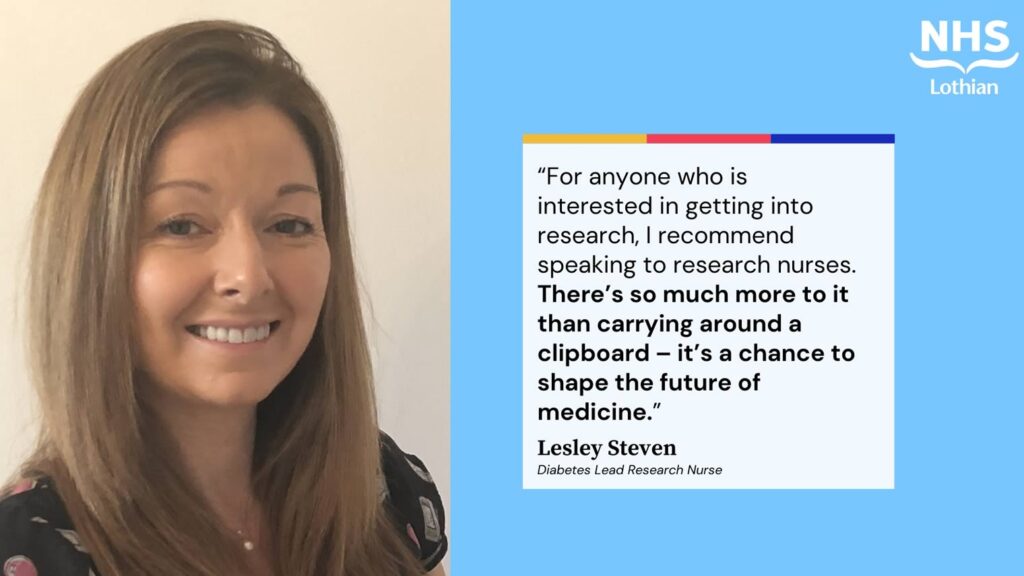
Lesley Steven is a Research Nurse who specialises in diabetes. After spending four years as a staff nurse, she took a research module as part of her degree, which awoke an interest in research – since then, she’s spent over two decades in the field.
“I worked as a generic research nurse at the clinical research centre at the University of Edinburgh for three years,” Lesley says. “Working as a generic research nurse is great, because you work in all sorts of specialties, and you can figure out what really interests you.”
For Lesley, that was diabetes research. She has now been a diabetes research nurse for 17 years, and she is still enjoying it thoroughly.
“The most satisfying thing is being able to follow patients through clinical trials, which may take four to five years,” Lesley says. “Because of the time scales you’re working with – you’re not necessarily working with immediate need, so there’s more time and opportunities to get to know patients than some other practitioners may have.”
As a research nurse, your relationship with the patient is paramount to the success of the research, Lesley explains. “You have to set and manage their expectations throughout the trial, and make sure they have all available information. It’s very important that you do everything you can to make sure they’re fully equipped going into the study, because if someone drops out of the study, it can cause a lot of complications for our results. Additionally, your trial size needs to be big enough to draw conclusions so, if you’re not able to retain your participants, that can be a huge issue.”
In Lesley’s experience, most people benefit from participating in trials whether the drug has an effect or not. “Whether they are participating in a trial as part of our control group or by receiving trialled treatment, they still receive all the additional support that we can offer. We also look to optimise our patients’ diabetes control and they will be given other treatment as well to help improve their quality of life.”
Lesley’s favourite part of her role is that she is at the forefront of drug and technology developments. “Diabetes care has changed massively over the past two decades, and it’s great to see what a huge difference new medications and new treatments can make,” Lesley says. “It’s a fascinating and challenging field, with a job that changes all the time.
“For anyone who is interested in getting into research, I recommend speaking to research nurses and shadowing them. We have three great research facilities in NHS Lothian, so looking into them is a great idea for understanding the field. Then, you can start by supporting with clinical trials, then coordinating them and, before you know it, you’ll be running clinical trials yourself. There’s so much more to it than carrying around a clipboard – it’s a chance to shape the future of medicine.”
Elaine Jack
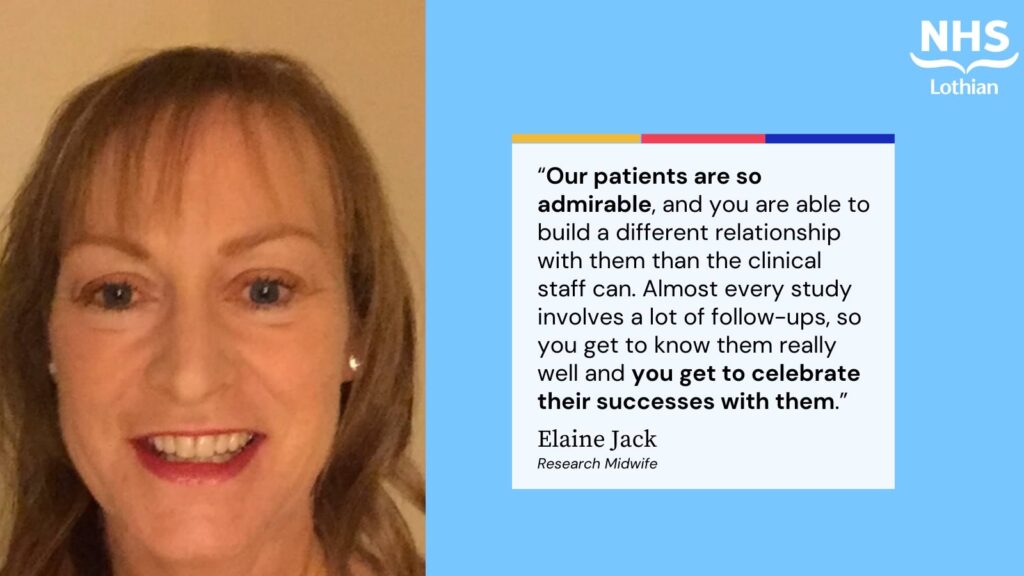
Elaine Jack is a Research Midwife who works in a team of midwives. She has been in research for seven years and is working on studies relating to all aspects of women’s and babies’ health, whether that be prevention of pre-term birth, studying how steroids travel through the placenta, or the effect of sleep apnea equipment on foetuses. She and her team adapt to what the service needs.
Elaine became a midwife in 1996 after having looked for a programme that didn’t require her to take nursing first – she knew what she wanted, and in 1992 she applied for the first Scottish programme that educated students to become midwives directly, instead of requiring three years of nursing first. She remained in midwifery until she took a sabbatical in 2012 and worked in a small midwife clinic in Australia.
“It was eye-opening,” Elaine says. “When I came back to work in the UK, I wasn’t enjoying my post – but I saw a research midwife position become available, and I applied right away. Luckily, I got it, and I absolutely love it.”
One of Elaine’s proudest moments in research was her involvement in a specialist clinic that supported women with a BMI over 40 during pregnancy. Patients who were able to attend this clinic were eight times less likely to have a stillbirth than those who did not, a shocking statistic that illustrates just how important it is to provide specialised care backed by research. That clinic was fully embraced by NHS Lothian and is now funded and staffed by the health board.
“You meet women who have been in really, really difficult circumstances,” Elaine says. “They are very vulnerable, and so being able to standardise care and ensure that we’re providing the most effective care for those women is incredibly powerful.
“Our patients are so admirable, and you are able to build a different relationship with them than the clinical staff can. Almost every study involves a lot of follow-ups, so you get to know them really well and you get to celebrate their successes with them.”
Elaine highlights the importance that clinical staff have in patient care, and says she often tries to take the load off the clinical staff whenever possible. “If I’m taking a patient’s bloods for our study,” she says, “and they’re also having bloods taken by the clinical staff, of course I’ll do that at the same time. It just makes sense – it gives the clinical staff a little more room to breathe, which is dearly needed at the moment, and it provides better patient care too.”
When many in her position decided to work from home during the pandemic, Elaine opted to stay in the hospital to maintain that in-person contact with both staff and patients. “Without clinical staff, we couldn’t do our jobs,” Elaine says. “I’m immensely grateful for them.”
She encourages all midwives with an interest in research, academia, and patient contact to come into research – “It is a vital and life-saving field and I absolutely love it,” Elaine says. “I can’t recommend it enough as a career choice.”

